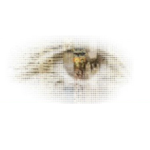
Researchers from across Trinity collaborate in applying information and communications technologies to our explore our past and understand our present. Our scholarship not only creates and interrogates digital artefacts, but studies how new media are transforming the disciplines in which they are used, from publication to teaching.
The computational tools and methods used thus cut across traditional disciplinary practice to provide powerful shared focal points ranging from the visualisation of massive and complex datasets, to the representation of our analogue heritage in digital form, to the evaluation of digital scholarship. Researchers at Trinity have taken a lead internationally in refining these methodologies and building the infrastructures to enable Digital Humanities research, by representing Ireland on the European infrastructure DARIAH, and leading or otherwise playing key roles in projects with a sum total of funding in excess of €10M.
Bringing together expertise from the various disciplines of the arts and humanities as well as from computer science, linguistics, engineering and the library, particular research strengths within TCD include digital textual scholarship and editing, virtual/augmented/ mixed reality performance, data mining and visualisation, time-series analysis and historical modelling, personalisation and localisation, digital curation, 3D worlds, and music and new media.
Digital Humanities Research at Trinity covers a wide range of topics and methodologies, leveraging productive exchange encouraged between large European collaborative initiatives and smaller, local projects led by historians, literary scholars and others. In addition, its creators span the range of career phases, from MPhil students in both our Digital Humanities and Culture and Public History courses, through to and PhD candidates and established researchers. An overview of active and completed projects (2006-2016) appears here, or you can learn more from our research brochure.
[pt_view id=”00cbe76wzg”]
